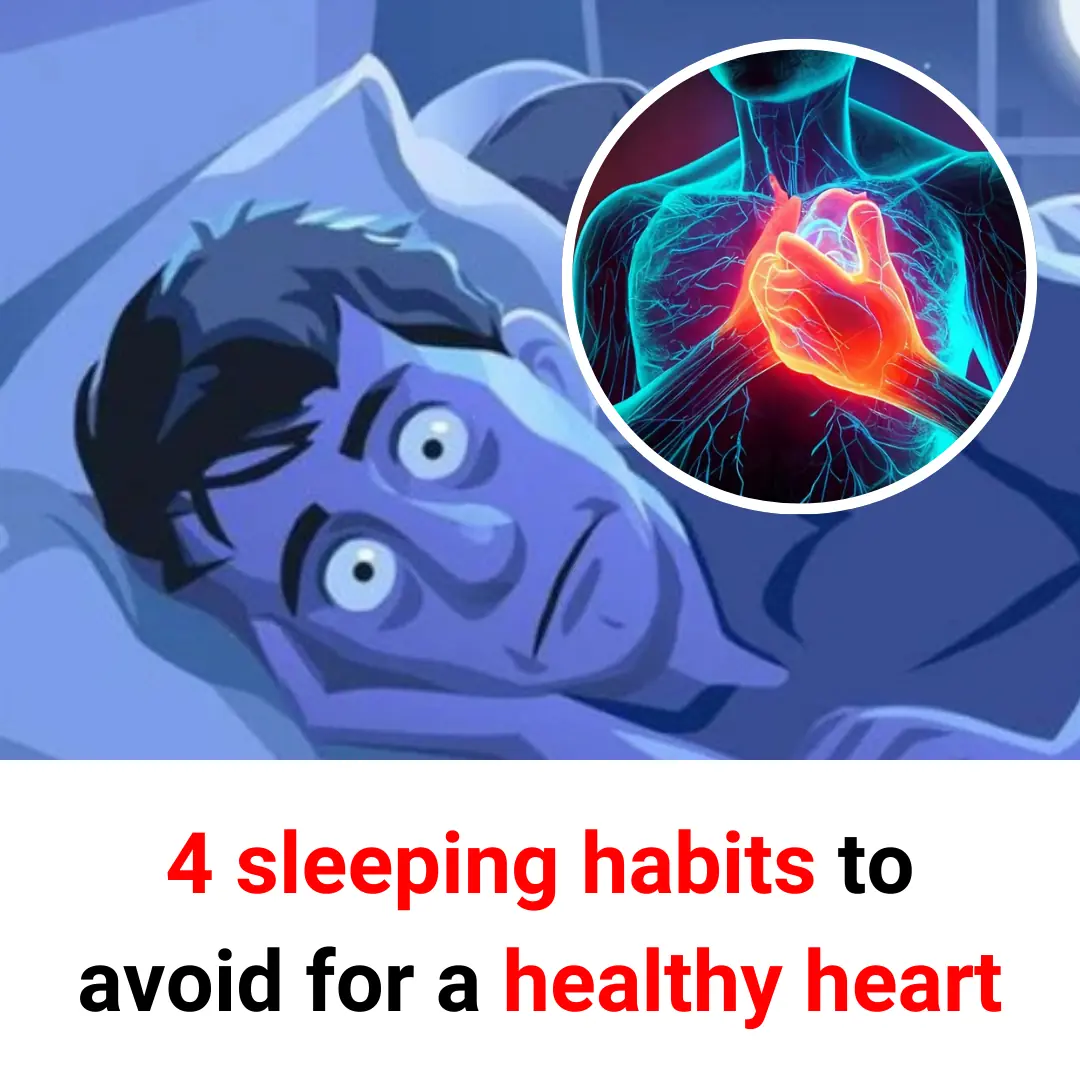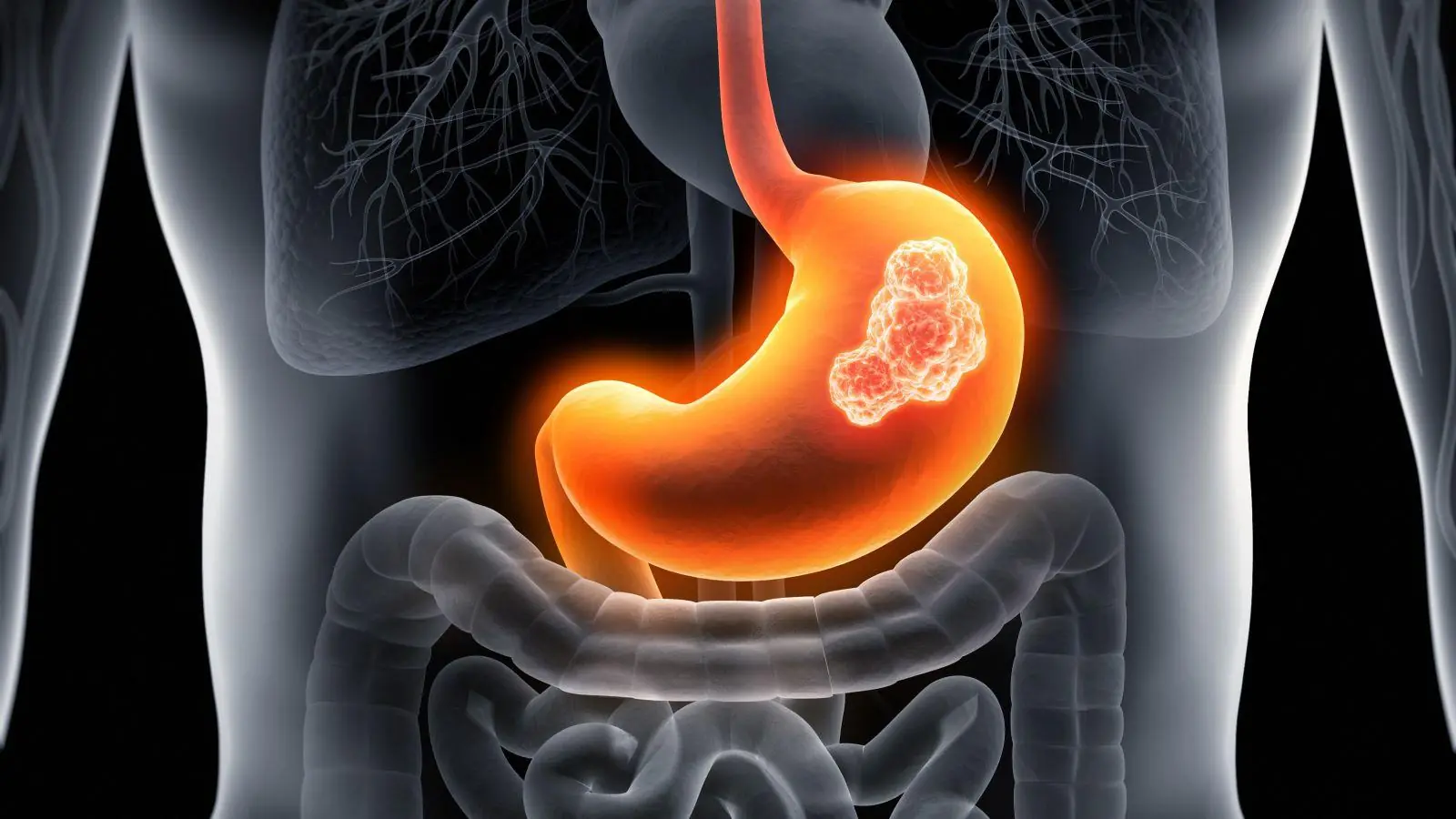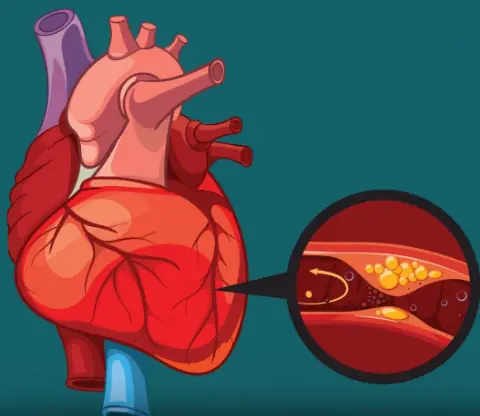
4 sleeping habits to avoid for a healthy heart

Sleeping too little or too much, improper posture, and frequent use of electronic devices affect sleep quality and increase the risk of heart disease.
To keep your heart healthy, you need to focus on factors such as diet, exercise, and regular health check-ups. Quality sleep is also very important, because some sleeping habits can negatively affect the cardiovascular system.
- Poor sleep quality
Interrupted sleep or sleeping less during the week and more on weekends disrupts the body's circadian rhythm. Everyone should establish a consistent sleep schedule, the recommended time is 7-8 hours per night.
Regular lack of sleep contributes to an increased risk of many heart-related diseases, including high blood pressure, increased stress on the cardiovascular system, and affects overall heart function. Therefore, the body needs adequate rest every night.
- Inappropriate sleeping positions
Sleeping on your stomach can put pressure on your heart and lungs, making it harder for blood and oxygen to circulate than usual. Sleeping in this position can also cause tension in your neck or back.
Sleep apnea occurs when your airway is repeatedly blocked, causing you to stop breathing for short periods of time. This condition can be caused by certain health problems such as obesity and heart failure. Sleep apnea affects the amount of oxygen your body receives, increasing your risk of high blood pressure, heart attack, stroke, etc.
Inappropriate sleeping positions are harmful to your heart and lungs. Photo: Freepik
Sleeping on your stomach can put pressure on your heart. Photo: Freepik
- Excessive snoring
Snoring too much can affect your heart health and lead to high blood pressure, heart attack, and stroke. Snoring can be a symptom of sleep apnea. High blood pressure caused by sleep apnea can potentially damage your heart. People who snore regularly should see a doctor and get tested to see if they have sleep apnea and to what extent.
- Using electronic devices before going to bed
Using phones, tablets or watching TV can disrupt the body's natural sleep-wake cycle. The blue light emitted by electronic devices also affects the sleep-controlling hormone melatonin. Avoiding using these devices at least an hour before going to bed helps promote good sleep and protects cardiovascular health.
Everyone should follow a regular sleep schedule. Go to bed and wake up at the same time every day, including weekends. Exposure to natural light early in the day (walking outdoors, opening windows, blinds) can normalize the body's circadian rhythm.
The process of energy expenditure and changes in body temperature during exercise also promotes good sleep. Avoid high-intensity exercise close to bedtime because it interferes with the body's ability to stabilize before going to bed. Read a book, stretch, listen to soft music or practice yoga or meditation to help you relax and sleep better.
Avoid eating or drinking close to bedtime, and avoid alcohol and foods high in fat or sugar. Keep your bedroom cool, dark and quiet.
News in the same category


A cup of hot water can cure 6 common dis.eases, simple but few people pay attention

Most stomach can.cers are detected late: Doctors say there are 5 symptoms after meals so you should have an early endoscopy

Grape Hyacinth (Muscari): A Tiny Spring Wonder with Surprising Benefits and Uses

Two itchy body parts may signal liver can.cer - Many people mistakenly think it is an allergy

If you wake up in the morning and see your body has these 2 characteristics, be careful, your liver is on the "brink" of failure: You should go see a doctor soon!

6 foods that silently drain calcium from the body, the more you eat, the weaker your bones become

Top Hospitals Issue Stark Warning: This Common Meat May Be “Feeding” Can.cer — Just 50 Grams a Day Raises De.ath Risk by 18%

Black Beans and Black Sesame: The Ancient Pair That “Cleans by Day, Restores by Night” — Yet Most People Use It Wrong

The Real Causes of Constant Phlegm and Mucus in Throat — And How to Get Rid of It

3 Signs Your Parent May Be Nearing the End of Life — How to Prepare for What’s Ahead

Why you keep waking up with dry mouth—and what it may be telling you

If You Keep Waking Up at 3AM, The Universe Might Be Trying to Tell You Something

These sudden purple patches on my arms won’t stop appearing, and my doctor is booked until January. What’s happening?

The Hidden Meaning Behind Thumb Rings for Women vs. Men

The Best Foods to Cleanse and Prevent Clogged Arteries

The Ultimate Guide to Cloves: Benefits, Uses, and How They Work

Top 10 Foods to Control Diabetes

90% of Cerebral Infarction Patients Did These 3 Things in the 3 Days Before a Stroke — Chances Are You’re Doing the Second One Right Now

🩺 If Your Kidneys Are in Danger, Your Body Will Warn You With These 8 Signs
News Post

Snakes are af.raid of these 5 plants - Plant them around your house to repel snakes and protect your family

No one would dare reheat cold rice to eat if they knew this terrible truth

What Happens to Your Body If You Eat 1 Clove of Garlic Every Day?

A cup of hot water can cure 6 common dis.eases, simple but few people pay attention

Fresh Spicy Napa Cabbage Kimchi (Quick Kimchi)

Most stomach can.cers are detected late: Doctors say there are 5 symptoms after meals so you should have an early endoscopy

Grape Hyacinth (Muscari): A Tiny Spring Wonder with Surprising Benefits and Uses

Two itchy body parts may signal liver can.cer - Many people mistakenly think it is an allergy

If you wake up in the morning and see your body has these 2 characteristics, be careful, your liver is on the "brink" of failure: You should go see a doctor soon!

6 foods that silently drain calcium from the body, the more you eat, the weaker your bones become

90% of women don’t know this trick: Add this one thing to the pan and you can fry “everything” without worrying about oil splattering!

Top Hospitals Issue Stark Warning: This Common Meat May Be “Feeding” Can.cer — Just 50 Grams a Day Raises De.ath Risk by 18%

Black Beans and Black Sesame: The Ancient Pair That “Cleans by Day, Restores by Night” — Yet Most People Use It Wrong

When Buying Bananas, Just Say These 3 Words — Sellers Will Think You’re an Expert and Won’t Dare to Cheat You

The Real Causes of Constant Phlegm and Mucus in Throat — And How to Get Rid of It

3 Signs Your Parent May Be Nearing the End of Life — How to Prepare for What’s Ahead

Why you keep waking up with dry mouth—and what it may be telling you

So this is what it does, here is the answer

If You Keep Waking Up at 3AM, The Universe Might Be Trying to Tell You Something
